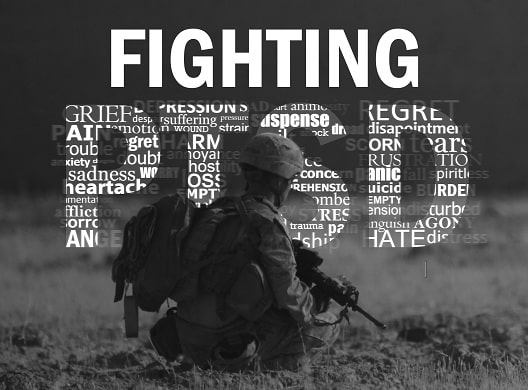What is Post-Traumatic Stress Disorder (PTSD)?
After a traumatic experience, it’s not unusual to feel frightened, sad, anxious, and disconnected.
- But did you know that when such feelings persist, you may be suffering from post-traumatic stress disorder (PTSD)?
Good to know there are doctors, elite trainers and lifestyle experts to help you navigate the emancipation process through the complex PTSD recovery phase.
But sadly, doctors are humans too and will benefit from scientifically proven, PTSD recovery tips.
Doctors, not martyrs – that was the caption of one of the headlines sometimes ago.19
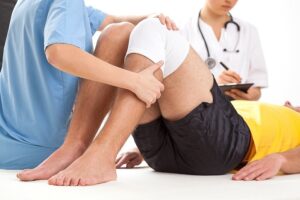
- And did you know that this was because of the rising death toll of doctors and healthcare providers as a result of COVID-19?8
Some medical doctors die directly from the disease.
- While others are left scuffling to get PTSD recovery due to the traumatic losses of their patients.
The indelible mark of PTSD left by the helplessness of no known cure was devastating for the medical community.
The bitter truth is that victims of the dreadful disease may never get the healing from PTSD they desire and deserve.
And that fear is only soothed by the hope of the soon-to-arrive vaccine.
The 2nd wave of COVID-19 is here already in full swing London – UK, and some parts of the world.
But there’s encouraging news of the vaccine being available with many more in the works.16
Hopefully, we can return to the life we’re used to before we had to hide behind our masks.
For healthcare workers, this precarious period is quite frightening even if they don’t disclose it.6
- Did you know that the world has lost several of its esteemed old and experienced doctors to COVID-19 particularly in the United Kingdom?12
There’s still the anxiety and pressure of looming litigations just around the corner.20
Working in the ICU comes with lots of challenges like complex PTSD recovery, anxiety and depression for medical doctors.7
- Don’t be surprised that there must have been some medical errors. They’re human after all.
- Not due to a lack of knowledge or incompetence, but the very disease being combatted can kill anyone, doctor or patient, with no moment’s notice.
The PTSD that comes with not knowing can be crippling.7
Different levels of PTSD can be tracked in ICU medical doctors.6
- The way doctors get healing from PTSD differs from one physician to another.
The burnout and brain drain is palpable even to the public.
- The mental assault that comes with the inadequate personal protective equipment can be quite disturbing.19; 6
The surge in the number of people infected with COVID-19 was quite rapid at the onset.
This exerted instant pressure and added stress for the world especially ICU doctors and nurses.6
There was a very little time to recover before another patient comes by, or worse, dies. 6
- If you’re a doctor, you can relate to losing a friend or a loved one to COVID-19.
At least you may know someone who has experienced such a loss.
The resultant effect of the constant losses culminates in chronic stress – borderline PTSD, PTSD, and the struggle for the complex PTSD recovery.
This has been shown to persist later even after the horror is over.6

- What are your challenges and pains?
For a limited time only request now a FREE CONSULTATION!
How do I know if I have PTSD?
While people fret over being in isolation centres, doctors are constantly going towards that which everyone is running from.13
That affects physicians in adverse ways.
The symptoms of PTSD that will require complex PTSD recovery present typically just after the traumatic event that eventually triggers it.
About one out of every 5 doctors may be lucky not to show symptoms.6
But, it may be weeks, months and sometimes even years to be able to detect the disease in some others.
Thanks to the Thursday Applauds for Healthcare workers in the UK.
It was a soothing balm set to deter the attributed stigmatisation that first responders may face, which can trigger PTSD symptoms in them.1
Moreover, recent studies revealed that the mind of doctors is consistently under the risk of psychological battering.21
However, those doctors managing COVID-19 patients directly in ICUs are at increased risk.9
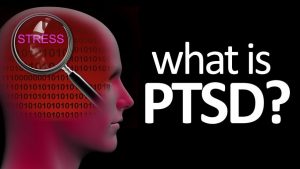
So, if you’re a healthcare professional working in the ICU, these are examples of symptoms that may prompt you to get healing from PTSD.
- Alexithymia
- Avoidance
- Depression
- Derealisation
- Functional impairment
- Hypervigilance
- Insomnia
- Irritability
- Re-experiencing
Military PTSD Symptoms
When I set out to write this piece on PTSD, I giggled at the thoughts that ran through my mind.
I’m sure some people think of PTSD and hardly think of doctors, nurses, or any healthcare professional.
- During this period, you can easily rationalise the term “first responders” as doctors working in ICU because of the pandemic.
What will likely come to the mind of most people is military PTSD symptoms when PTSD is being discussed.
- For instance, the mental picture is likely a veteran or military personnel struggling to keep up with life normally rather than an individual struggling with recovery from infidelity as a Post-traumatic stress disorder.
That won’t be too far from the truth.
But the narrative has been extended to first responders and others based on the traumatic events they witness.
What are you likely to observe in veterans with PTSD?
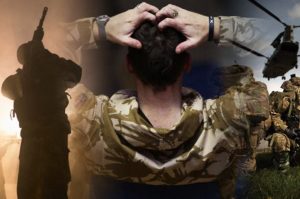
Military PTSD symptoms include the following:3
- Alexithymia (cannot properly identify and describe emotions experienced by one’s self or others)
- Anxiety
- Cognitive dysfunction
- Depression
- Dissociative symptoms
- Emotion regulation difficulties
- Reduced psychosocial functioning
- Reduced verbal memory performance
The above symptoms can be experienced not just by soldiers but also by surgeons and physicians in London.
You may say, these things happen at some point in life but healing from PTSD may be necessary for a quality lifestyle.
PTSD Effects fought with Humour and Alcohol
However, studies have shown that doctors cope with PTSD using humour or worse alcohol.5
If you find yourself with any of the following habits,5 then you may already be traversing the complex PTSD recovery road.
- Acceptance
- Active coping
- Alcohol abuse
- Behavioural detachment
- Comic relief
- Denial
- Distraction
- Drugs
- Emotional expression
- Emotional support
- Instrumental support
- Planning
- Positive reappraisal
Have you worked in the military?
- Would you like to gain PTSD knowledge to combat it in a much easier way, develop your mind, and boost your self-esteem and confidence?
For a limited time only request now a FREE CONSULTATION!
Combat PTSD and Relationships
Several studies have gone into the link between combat PTSD and relationships.
The negative impact of PTSD is felt more by the people closest to the victims compared to the larger community.
- Did you know that several military personnel have suffered combat PTSD and relationships have been damaged due to personality disorder that comes with it?3
It is for this reason most military officers now undergo a psych evaluation.
This will help them pick it early to offer them prompt intervention.
War affects people in different ways.
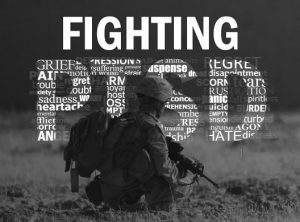
Traumatic events mar people in different ways.
As much as it is not a hopeless situation, personal relationships are always a sore issue for veterans.2
It’s a vital milestone when such people learn to stop being aggressive and portray assertiveness instead.2
- Proper communication is one major aspect of the complex PTSD recovery process to be achieved.
Achieving improvements in communication leads to a better quality of life in PTSD recovery.
Signs and Symptoms of PTSD
The following are some examples of trauma that can cause complex PTSD:
- experiencing childhood neglect
- experiencing domestic abuse
- experiencing other types of abuse early in life
- super-imposed PTSD whilst in the process of recovery from infidelity as a Post-traumatic stress disorder
Common symptoms of PTSD and complex PTSD include:
- avoiding scenes and places that bring back the memories
- avoiding situations that remind them of the trauma
- being extremely and uncontrollably irritable
- challenge with concentrating on routine tasks and activities
- difficulty or struggling to get adequate sleep
- dizziness or nausea when remembering the trauma
- often losing touch with their immediate reality
- reliving the trauma through flashbacks and nightmares

Would you say the above symptoms sound familiar?
- If you or your loved ones have experienced any of these, for a limited time only request now a FREE CONSULTATION!
PTSD – Challenge Your Sense of Helplessness
Knowledge is power.
That is if it’s utilised appropriately (applied knowledge), from that point on, power is simply power, a crude and brutal force.
Understanding PTSD is crucial, no matter how sad it may be, it helps in being rid of it sooner than later.
Physicians through Diagnostic and Statistical Manual of Mental Disorder, Fifth Edition (DSM-5) classified various symptoms of PTSD into 4 major ones9:
- Re-experiencing
- Avoidance
- Negative cognitions and mood
- Arousal
PTSD recovery is a gradual, ongoing process.
Healing from PTSD doesn’t happen overnight, nor do the memories of the trauma ever disappear completely.
This can make life seem difficult at times.
But there are many steps you can take to cope with the residual symptoms and reduce your anxiety and fear.
- Did you know that most doctors are so humane that they neglect themselves and spend less time with their loved ones to ensure that their patients get the best healthcare?
Such a sacrifice is what makes you, a lifesaver, a special person and a superhero.
But you still need to care for yourself to give the best services.
- Errors may be committed when stretched beyond your capacity which could result in serious harm to the patient.11
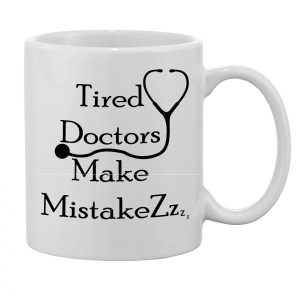
And in many cases, it’s totally out of your control.
- In the case of COVID-19, it was a totally new challenge and yet you’re the first responders to something yet to be fully understood.
As much as we’re winning against COVID-19, the experience for MDs working in ICUs have been disturbing and detrimental to their mental health.
PTSD can present with symptoms like emotional fatigue.
But a typical PTSD therapy may have any of the following:
- Hamilton Rating Scale for Anxiety (HAMA)
- Hamilton Rating Scale for Depression (HAMD)
- Miller-Forensic Assessment of Symptoms Test (M-FAST)
- PTSD Checklist
- Self-regulation
- Structured Clinical Interview for DSM-IV
- The Clinical Global Impressions Scale (CGI)
However, these names might not tell much so what are these strange tools?
- Hamilton Rating Scale for Depression (HAMD) and the Hamilton Rating Scale for Anxiety (HAMA) helps to grade anxiety and depression clinically.2
- Miller-Forensic Assessment of Symptoms Test has 25 questions that’ll lead to a definitive diagnosis. 15
- PTSD Checklist − Military Version assesses how bad PTSD symptoms are during all phases of the complex PTSD recovery.2
- It is not unusual to do Self-regulating too. It can also be used during recovery from infidelity as a Post-traumatic stress disorder. It entails using a logbook to monitor daily behavioural activities.
This is where people record nightmares, sleep duration, social events, and the degree of their anger intensity.2
- Structured Clinical Interview for DSM-IV helps to identify other existing disorders during the early stages of the treatment.2
- The Clinical Global Impressions Scale (CGI) helps to evaluate the improvements being made at therapy.15
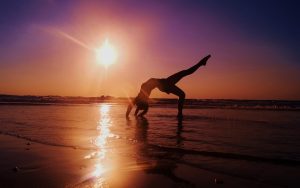
Support PTSD Treatment with a Healthy Lifestyle
The symptoms of PTSD can be hard on you.
Are you living in greater London?
Are you in the process of recovery from infidelity as a Post-traumatic stress disorder?
If you do it’s important to take care of yourself and benefit from professional lifestyle support or an expert personal trainer in London based, and Harley Street nutritionist whilst developing focused healthy lifestyle habits but also replacing recreational drugs and alcohol.
You will be motivated and inspired, so you will get adequate peace of mind, rest, exercise and eat healthy and nutritious meals.
A healthy lifestyle has several benefits like:
- Maximizing health output
- Minimising burnout
- Reducing anxiety
- Minimising other things boosting PTSD
- Healing from PTSD
The road to PTSD recovery can be challenging.
But having a personalised lifestyle, elite trainer and nutrition expert support to help you with dietary and physical aspects of the journey goes a long way.
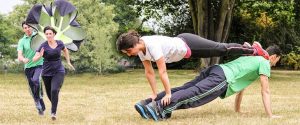
The customised support system is the best to help you with these.
I will help you to consolidate healthy habits to fight anxiety, stress or depression and highlight few PTSD recovery tips.
- Did you know that studies have shown that when you’re suffering from depression, PTSD, or any chronic illness, it becomes difficult to maintain health-promoting behaviours? (10)
But anger and self-regulation are equally implicated in influencing healthy behaviours.10
- It has nothing to do with knowledge, even if you’re a doctor, you can still sabotage your health with bad habits.
Interestingly, exercise is very helpful in staying healthy.
It ultimately helps in keeping good behaviours in several medical conditions.10
Exercise cultivates agreeableness and conscientiousness for anger management too.18
Anger is one of the common traits associated with PTSD.
The outburst and rage come up as a result of frustration.
This negatively affects healthy CNS activity.18
But exercise will improve your self-regulating behaviours helping to eventually recover.
So give it your best shot with the above PTSD recovery tips.
Go with a full arsenal.
Get expert support a professional elite trainer near you.
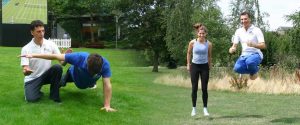
It’ll help you optimise your self-regulation and get healing from PTSD eventually.
Getting Elite Professional Trainer Help for PTSD in London
If you suspect that you or a loved one has post-traumatic stress disorder, it’s important to seek help right away.
The sooner you get healing from PTSD, the easier it is to overcome.
If you’re reluctant to seek help, keep in mind that PTSD is not a sign of weakness, and the only way to overcome it is to confront what happened to you and learn to accept it as a part of your past.
The challenge in procrastinating is that other stressors like bad headlines will complicate matters.
The continuous show of bad and negative headlines about the world adds to our problems.17
Even though there’s more to the bad news.
There’s still good news out there.
Some of the helpful PTSD recovery tips highlight subtle stressors below as detrimental:
- Breaking news almost always being about bad news
- The constant flow of DMs
- Continuous ping of emails
- Questions from confused friends and relatives
- Repeated notification of texts
An Elite Professional Trainer in London
Let me tell you a little bit about me.
I’m Jazz Alessi.
I’m one of the 6 – 7 elite personal trainers in London and I trained Olympic athletes.
2 decades of experience in training world class top athletes and professional rehabilitation certification has also contributed to my long-term expertise at injury prevention and rehabilitation.
Added to this,
I’m also a 2nd generation Pilates’ trainer (we are under 20 trained at this level in the UK) and a long-term Harley Street sports nutritionist.
- Did you know that customised Pilates is extremely beneficial for a sound mind amongst other things like the process of recovery from infidelity as a Post-traumatic stress disorder?
Research carried out over the last 2 decades has shown that having personalised Pilates sessions helps you become stronger physically while the mind and body training helps you becoming less anxious and stressed.
- It has also been revealed to rid people of anxiety disorders and depressive disorders.
I’ve helped many clients achieving stones of weight loss and awesome youthful looking body transformation in London.
Understanding the clinical role of exercise with a personalised nutrition diet plan as a certified Harley Street nutritionist with focused and unique practical implementations gives me an edge over others.

- Ready to transform your life against all odds?
- Are you willing to get your life back on track?
For a limited time only request now a FREE CONSULTATION!
Post-Traumatic Stress Disorder Recovery with Exercises in London
- Did you know that expertly customised nutrition and exercises will corner and properly squash anxiety and improve the mental health of any doctor after healing from PTSD?
An added advantage is taking care of any underlying problems or achieving desired goals long forgotten.
We are all different.
Apart from improving your physical health and physique, customised workouts give you a large sense of well-being.
The following are other benefits of customised training workouts you want to consider:
- It is an excellent antidote to depression; this is because exercise accelerates all kinds of changes in the brain.
It encourages neural growth, reduces inflammation and gives new activity patterns that promote feelings of calm and well-being.14
This effect is beneficial and it is very efficient therefore, it helps in recovery from infidelity as a Post-traumatic stress disorder.
- It makes you feel very energetic and alive all through the day: It energises the spirit, shields the mind from negative thoughts and makes one feel good.14
- It curbs anxiety: it is said that exercise is a natural and effective anti-anxiety treatment, this is because it causes the release of endorphins which relieves tension and stress, boosts physical and mental energy and enhances all-round well-being of persons.14
- It relieves stress: exercise will help to relax the muscles of a stressed up doctor, thus giving him or her relief from the day’s work.14
- Transform your confidence and self-esteem: As you become ripped and become more agile, your mind feeds off that.
It helps them to sleep better because it relaxes the body system.14
You’ll be refreshed every waking day, aiding recovery from infidelity as a Post-traumatic stress disorder among other things.
It helps to keep mental health problems under check, higher self-esteem and sharper memory.(14)
- It doesn’t end at weight loss or body transformation: If you work with an elite personal trainer London based that can also train you online, the goal will be to make it sustainable vis-a-vis your schedule.

Increase energy levels, achieve very effective regeneration and rejuvenation – slow down ageing and increase vitality and youth born abilities resulting from personalised nutrition and training.
- Reduce and eliminate anxiety: You may not notice it, depression and anxiety are silent creepers.
Rehabilitation of something as crucial as lower back pain or joint pain may improve your mental health.
- Highest quality and laser sharp designed personal training exercise programme: Nothing beats a laser sharp customised workout programme.
Chronic stress from recurrent mental battering invites, irritability, burn out, difficulty sleeping, higher blood pressure and high triglycerides.4
All these can be significantly improved and to some extent eradicated using specifically designed workouts tailored to your needs.
What can I do to recover from PTSD on my own?
Complex PTSD Recovery on its own is extremely challenging even with scientifically proven peer reviewed PTSD recovery tips.
PTSD affects anything and everything.
It can affect your performance at any level and cause strains in your relationships at large.4
In some cases, it may even lead to infidelity or adultery, climaxing in divorce.
Although, recovery from infidelity as a post-traumatic stress disorder victim is an ongoing process that takes time.
You will usually need the professional help of others to get through it.
But there are PTSD recovery tips you can take by yourself to help you recover and stay well.
Discover which ones help you feel better and add them to your life.
- Connect with friends and family
- Get enough rest
- Limit caffeine, alcohol, and drugs that aren’t prescribed for you
- Keep life as normal as possible
- Get back to your usual routine
- Talk about what happened to someone you trust
- Try relaxation exercises
- Go back to work
- Eat and exercise regularly
- Go back to where the traumatic event happened
There’s no bigger support system than friends and family most times.
You’ll be encouraged, appreciated, and celebrated for your positive achievements.
Spending time with loved ones is one of the PTSD recovery tips that will make you see life positively.
Family and friends create a good atmosphere in aiding recovery from infidelity as a post-traumatic stress disorder victim.
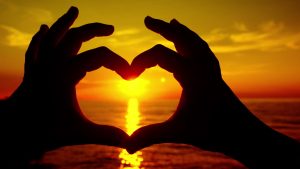
Conclusion
I’d like to believe you desire to explore more about the above PTSD recovery tips to enable you to live a better life.
As a medical doctor, it’s part of your oath to take good care of your health to be there for others.
This is why you must protect yourself and care for your health, physical and mental.
That is where all those remarkable knowledges of saving lives resides anyway.
PTSD can be devastating but can be managed a lot better with a laser sharp intervention like a personalised nutrition diet plan and customised personal training exercise programme.
If you are living in greater London (available for online training) it’s best that you are guided by an experienced elite London-based personal trainer.
Someone who trains professional athletes, is a rehab specialist and will help you with scientifically proven PTSD recovery tips, who has long-term expert knowledge in formulating customised diet plans that will suit you and your very busy schedule.
- Are you keen to put yourself first?
Keen to get started?
- Contact us for a FREE CONSULTATION.
If you have any questions or concerns, please contact jazz Alessi at: 020 3633 2299 (Monday – Fri: 6:30am to 9pm – Saturday: 8am to 3pm). Request for free consultation here https://www.personaltrainingmaster.co.uk/contactme/
For more information on expert services offered at our website, please visit https://www.personaltrainingmaster.co.uk
References
- Bai Y, Lin CC, Lin CY, Chen JY, Chue CM, Chou P. Survey of stress reactions among health care workers involved with the SARS outbreak. Psychiatr Serv 2004; 55: 1055–7. https://doi.org/10.1176/appi.ps.55.9.1055
- Beidel, D. C., Frueh, B. C., Neer, S. M., Bowers, C. A., Trachik, B., Uhde, T. W., & Grubaugh, A. (2019). Trauma management therapy with virtual-reality augmented exposure therapy for combat-related PTSD: A randomized controlled trial. Journal of anxiety disorders, 61, 64-74. http://dx.doi.org/10.1016/j.janxdis.2017.08.005
- Boyd, J. E., Protopopescu, A., O’Connor, C., Neufeld, R. W., Jetly, R., Hood, H. K., … & McKinnon, M. C. (2018). Dissociative symptoms mediate the relation between PTSD symptoms and functional impairment in a sample of military members, veterans, and first responders with PTSD. European Journal of Psychotraumatology, 9(1), 1463794. https://doi.org/10.1080/20008198.2018.1463794
- Duarte, C., Zakaria, H., Mahdi, E., Othman, S., & Ali, N. (2020). Correlation of stress and work load in dental students during clinical academic years. Hamdan Medical Journal, 13(1), 39. DOI: 10.4103/HMJ.HMJ_33_19
- Einav, S., Shalev, A. Y., Ofek, H., Freedman, S., Matot, I., & Weiniger, C. F. (2008). Differences in psychological effects in hospital doctors with and without post-traumatic stress disorder. The British Journal of Psychiatry, 193(2), 165-166. doi: 10.1192/bjp.bp.108.051532
- Galbraith, N., Boyda, D., McFeeters, D., & Hassan, T. (2020). The mental health of doctors during the COVID-19 pandemic. BJPsych bulletin, 1-4. doi: 10.1192/bjb.2020.44
- Gupta, S., Kohli, K., Padmakumari, P., Dixit, P. K., Prasad, A. S., Chakravarthy, B. S., … & Varadaraj, G. (2020). Psychological health among armed forces doctors during COVID-19 pandemic in India. Indian Journal of Psychological Medicine, 42(4), 374-378. https://doi.org/10.1177%2F0253717620934037
- Iyengar, K. P., Ish, P., Upadhyaya, G. K., Malhotra, N., Vaishya, R., & Jain, V. K. (2020). COVID-19 and mortality in doctors. Diabetes & Metabolic Syndrome: Clinical Research & Reviews, 14(6), 1743-1746. https://doi.org/10.1177%2F0253717620934037
- Johnson, S. U., Ebrahimi, O. V., & Hoffart, A. (2020). PTSD symptoms among health workers and public service providers during the COVID-19 outbreak. PloS one, 15(10), e0241032. https://doi.org/10.1371/journal.pone.0241032
- Kim, A. S., Jang, M. H., Park, K. H., & Min, J. Y. (2020). Effects of self-efficacy, depression, and anger on health-promoting behaviors of Korean elderly women with hypertension. International journal of environmental research and public health, 17(17), 6296. https://doi.org/10.3390/ijerph17176296
- Kumar, S. (2016). Burnout and doctors: prevalence, prevention and intervention. In Healthcare (Vol. 4, No. 3, p. 37). Multidisciplinary Digital Publishing Institute. https://doi.org/10.3390/healthcare4030037
- Majeed, A., Molokhia, M., Pankhania, B., & Asanati, K. (2020). Protecting the health of doctors during the COVID-19 pandemic. https://doi.org/10.3399/bjgp20X709925
- Maunder RG, Lancee WJ, Rourke S, Hunter JJ, Goldbloom D, Balderson K, et al. Factors associated with the psychological impact of severe acute respiratory syndrome on nurses and other hospital workers in Toronto. Psychosom Med 2004; 66: 938–42. doi: 10.1097/01.psy.0000145673.84698.18
- McCue, J. D. (1982). The effects of stress on physicians and their medical practice. New England Journal of Medicine, 306(8), 458-463. DOI: 10.1056/NEJM198202253060805
- Miller, H. A. (2005). The Miller-Forensic Assessment of Symptoms Test (M-FAST) test generalizability and utility across race literacy, and clinical opinion. Criminal Justice and Behavior, 32(6), 591-611. https://doi.org/10.1177%2F0093854805278805
- Nhamo, G., Chikodzi, D., Kunene, H. P., & Mashula, N. (2020). COVID-19 vaccines and treatments nationalism: Challenges for low-income countries and the attainment of the SDGs. Global public health, 1-21. https://doi.org/10.1080/17441692.2020.1860249
- Rosling, H., Rosling, O., & Rönnlund, A. R. (2019). Factfulness: ten reasons we’re wrong about the world – and why things are better than you think. http://ak.sbmu.ac.ir/uploads/Fact_Fullness_Hans_Rosling.pdf
- Shahbazzadeh, S., & Beliad, M. R. (2017). The Mediatory Role of Exercise Self-Regulation in the Relationship between Personality Traits and Anger Management of Athletes. International Education Studies, 10(5), 181-187. https://doi.org/10.5539/ies.v10n5p181
- Shepherd, A. (2020). Covid-19: Frontline doctors continue PPE fight. https://doi.org/10.1136/bmj.m2188
- Tomkins, C., Purshouse, C., Heywood, R., Miola, J., Cave, E., & Devaney, S. (2020). Should doctors tackling covid-19 be immune from negligence liability claims?. bmj, 370. https://doi.org/10.1136/bmj.m2487
- Um DH, Kim JS, Lee HW, Lee SH. Psychological effects on medical doctors from the Middle East Respiratory Syndrome (MERS) outbreak: a comparison of whether they worked at the MERS occurred hospital or not, and whether they participated in MERS diagnosis and treatment. J Korean Neuropsychiatry Assoc. 2017; 56: 28–34. https://doi.org/10.4306/jknpa.2017.56.1.28



